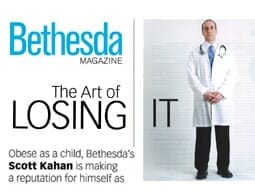Published in The Huffington Post on September 18, 2011.
The CDC’s recent report of the top 10 Public Health Achievements of the past decade overlooked one of the most important: progress in the fight against obesity.
I bet you’re surprised to read this. While there are many “no brainers” on the CDC’s list, such as tobacco control, motor vehicle safety, and heart disease improvements, scary statistics and media reports suggest that we’re losing the obesity fight.
To be sure, obesity rates only increased over the past decade, continuing the epidemic rise that has progressed over the past half-century. But hidden underneath the scary statistics is quite a bit of good news:
- Today, we have a national dialogue on obesity. This is a very recent shift. A decade ago, we weren’t talking about obesity (except to call fat people “lazy” and “stupid” and the like). There is now regular discussion about this epidemic, both in terms of improving the evidence base for individual treatments and how to mount an effective population-level approach.
- We now generally accept that obesity is a serious health problem, rather than simply a cosmetic issue. In a study that my colleagues and I currently have in press, we show that a number of key public health messages are penetrating society. The vast majority of Americans we surveyed recognize that their weight can affect their health. The vast majority of physicians polled acknowledge that they have a responsibility to help their patients with weight management.
- More information is now available than ever before. The internet is chock full of great resources for individuals, parents, kids, schools, teachers, doctors, and others to learn more about weight and health (of course, the reliable resources are awash in a sea of nonsense – caveat emptor, as always, still applies…feel free to email me and I’ll do my best to point you in the right directions). Schools are beginning to teach skills for healthy nutrition and physical activity. Workplace wellness opportunities are growing. Calorie labeling in restaurants will help millions to make healthier choices while dining out.
- Practitioners are slowly moving beyond simply lecturing patients to “eat less, exercise more,” and thinking about the underlying causes and contributors of individuals’ weight problems. Recent research has shown that primary care doctors can effectively implement comprehensive strategies to help their patients manage weight.
- The public and private sectors are on board. Governments, communities, schools, organizations, and even the food industry are working to address the policies, settings, contexts, and environments that set the stage for weight gain and obesity. Sure, each of these stakeholder groups can, and must, do more. But to have all of them working toward some common goals is a small victory in itself.
- Significant research, advocacy, and policy discussions about weight bias are now occurring daily. Though the level of vitriol has seemingly increased (as evidenced, I’m sure, by the hateful and inhumane anti-fat comments that will likely appear below this post), we’re now having real and informed discussions about the obesity epidemic, how to address the societal drivers of weight gain, how to support persons who have obesity, and where to go from here.
We certainly have a long way to go, and the surface stats don’t add up – yet. But progress has to start somewhere.
I believe that in the past decade we set the stage for a revolution in the way we approach obesity, both clinically and on a population level. When rates begin to decline, we’ll look back at this decade as having sown the seeds for success. It’s not going to be easy, but I like our chances.
And I look forward to CDC’s next report – due in 2021 – in which I’m confident obesity treatment and prevention will claim a prominent ranking.









